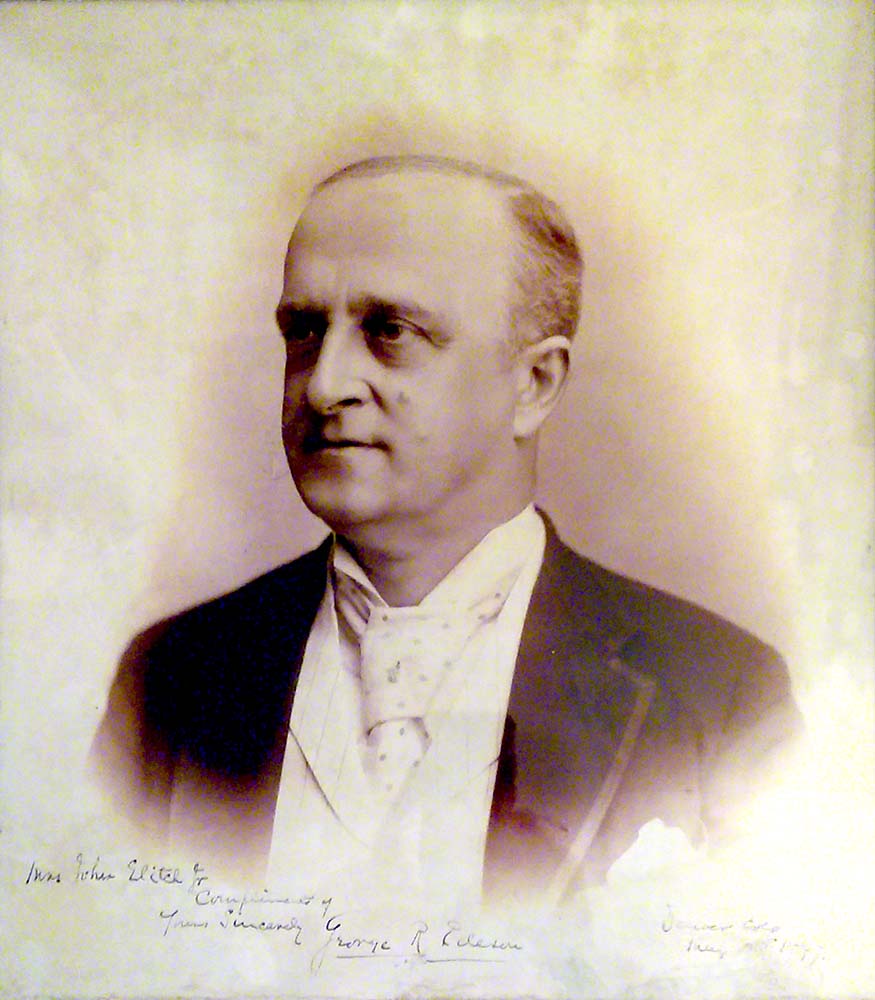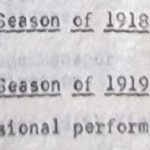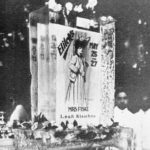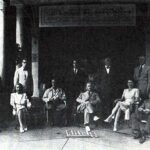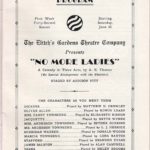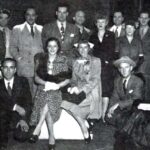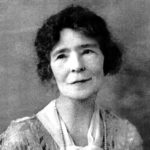Elitch Theatre becomes the first Summer Stock theatre in the country when Mary hires a resident cast and forms the The Elitch Gardens Theatre Company.
“Mary Elitch decided to establish a resident stock company plan at Elitch. This proved to be far more successful and dependable than the rather haphazard booking of individual vaudeville acts. Until 1899, vaudeville performances were sometimes presented between acts of plays. Beginning with 1901, vaudeville was eliminated at Elitch.
From 1897 until she relinquished control of the Theatre management in 1915 Mary Elitch followed the policy of having a resident stock company for a full season, augmented with occasional guest stars. The season usually began in June and continued through the first week of September. For the most part, actors of the resident company, numbering between ten and eighteen, were engaged for the entire season and were seen in nearly every production of the summer.
The company of actors, each well-known as a special stock character type, was recruited and cast in New York or Los Angeles and brought to Denver to play in ten plays.
The summer cast consisted of a leading man and a leading lady, a character actor and actress for older parts, a juvenile ingenue, a first and second business man and a first and second business woman, a comic, perhaps a “soubrette” (a coquettish male or frivolous young woman in comedies), and so forth. If minor supporting players or extras were needed, they were selected from the list of local amateurs (usually supplied by the acting schools of Margaret Fealy and Robert Bell) or from former professional actors who had moved to Denver to make their home.
If a leading player had to depart for New York or Hollywood in the middle of a season, as would occasionally happen, a “star” was engaged to replace him or her.
[Borrillo, T. A. (2012). Denver’s historic Elitch Theatre: A nostalgic journey (a history of its times). Colorado. p. 31-32]
“The Theatre building has twelve new fashion boxes in its auditorium, and the settings of the stage were almost entirely repainted.”
Mary Elitch’s 1897 improvements – The Daily News, May 23, 1897
Theatre Staff:
- Mrs. John Elitch, Jr., Proprietor and Manager
- George Edeson, Director
Resident Company:
- Jennie Kennark
- Rolinda Bainbridge
- Margaret May
- Leonora Bradley
- Walter Edwards
- Ernest Hastings
- William Burress
- Louis Haines
- Franklyn W. Hill
- Hugh Ford
Productions:
- Week of May 29: Helene, by Martha Morton.
- Week of June 6: Duty, or A Father’s Sin, adapted from Sardou by James Alberg.
- Week of June 13: Reaping the Harvest, by Henry Hamilton (1895).
- Week of June 20: The Rajah, by William Young (June 5, 1883, 250),
- Week of June 27: The Runaway Wife, by Fred G. Maeder (1888).
- Week of July 4: Mr. Barnes of New York, by Archibald Gunter (1889).
- Week of July 11: In Howard County, by Frank E. Carstarphen (premiere) and That Dinner at Olympia, adapted by George Edeson.
- Week of July 18: The New South, by J. R. Grismer and Clay Greene (1893).
- Week of July 25: The Burglar, by Augustus Thomas (1889).
- Week of Aug. 1: Red or White, by william M. Browne, and Snowball, by Sidney Grundy (1879).
- Week of Aug. 8: Lend Me Your wife, by Dion Boucicault and Sidney Rosefield (1890).
- Week of Aug. 15: Moths, by Helen Adeli (1883).
- Week of Aug. 22: A Husband in Clover (curtain-raiser) and specialty bill: Ferruccio Giaunimi, tenor; Drummond Staley and Belle Birbeck, musical blacksmiths; Harry Delaine, comedian; Miss Harriet Nicholson, singer; Arneson, equilibrist; Ray Southard, comedian; the Jarretts, marionettes.
- Week of Aug. 29: Ouda; Mrs. Letitia Crowe, whistler; Staley and Birbeck; Arneson; Ray Southard; Harriet Nicholson; Hall and Booth, sketch team; Little Rena Alberta; the Jarreths.
- One Performance, Sept. 9: Joe Newman and Elizabeth Field in scenes songs and sketches.
